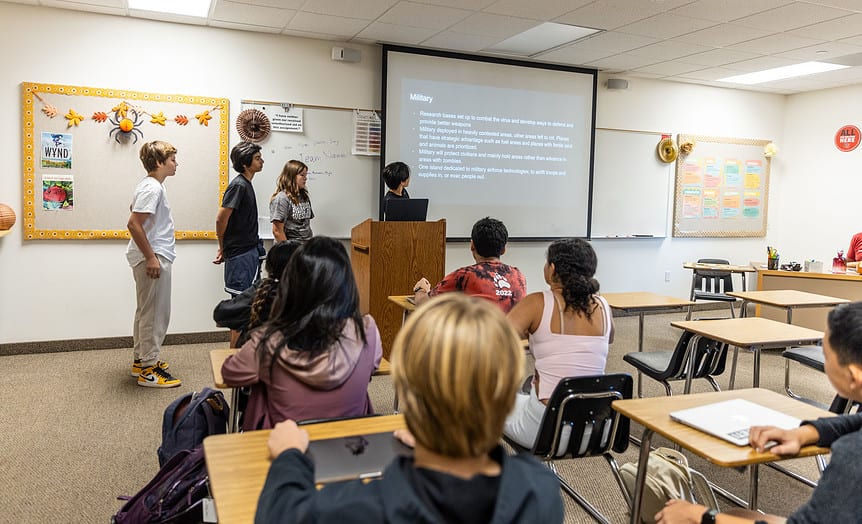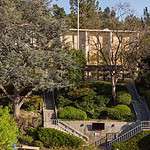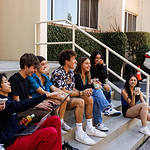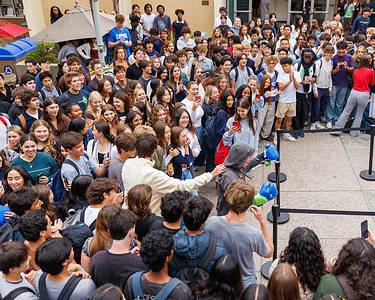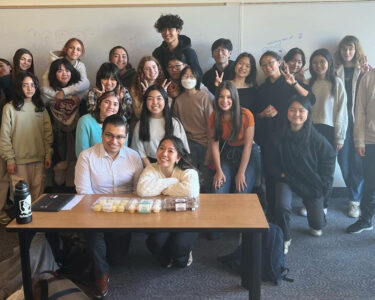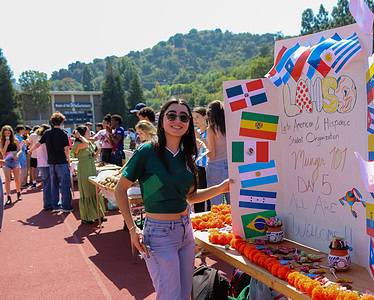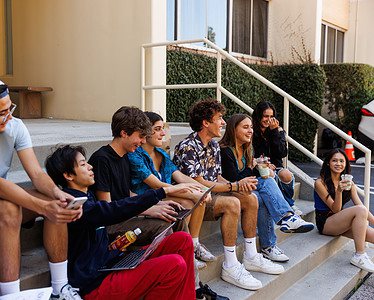By Max ’25
I’ve been an avid member of the debate team since I started at Harvard-Westlake in seventh grade. It’s one of my primary extracurriculars, and it’s one that I really enjoy and care about. Many students participate in debate for some time during middle school, and a large portion continue through high school—it’s a surprisingly popular activity, particularly at the middle school. Especially for new students, debate is a great opportunity to try out a new extracurricular and meet new people. I hope this explanation of the school’s debate team makes you more interested in participating.
In seventh grade, all team members compete in the Middle School Public Debate Platform (MSPDP) format, designed to introduce students to the fundamentals of debate. If you debated in elementary school, this style will probably be familiar to you—students debate in teams of three, emphasizing persuasion and basic public speaking. MSPDP is relatively simple and low-stakes, so it’s a great opportunity to try out debate and an entry point for less experienced debaters.
Those who continue debate after seventh grade will either compete in the Lincoln-Douglas (LD) or Worlds Schools debate formats, but the majority choose the former option. Lincoln-Douglas is more complex and competitive than MSPDP, and it’s a big step up for eighth graders. It demands more research, strategic thinking, and fast-paced speeches. During most rounds, debaters speak at an almost incomprehensibly fast speed, often beyond 300 words per minute. This new type of debate seemed daunting to me at first, but I quickly learned to love the challenge it provided.
First-year LD debaters compete in the novice division at tournaments, which allows them to debate similarly inexperienced opponents. This essentially gives you a one-year buffer period to practice and improve before competing in varsity. All second-year LD debaters automatically compete in varsity divisions. Unlike some other sports, varsity represents experience more than skill.
The team introduced the Worlds format more recently, but it’s become increasingly popular, with many debaters preferring this format to LD. It’s more similar to MSPDP than LD since students compete in teams of three to five and debate in a slower, more formal style.
One of the best elements of the debate team as a whole is its flexibility. Essentially, you get out of debate what you put into it. Tournaments aren’t mandatory, and you can choose which ones to attend based on your schedule and personal preferences. Some debaters go to nearly every tournament in a school year, often over a dozen, and some compete far less. Moreover, attending weekday practices is strongly encouraged but not always required—you can miss a day if you’re busy or have a scheduling conflict. Ultimately, students choose how involved they want to be in the activity, which makes debate easier to accommodate for already busy students.
Another aspect of debate that everybody enjoys is the opportunity to travel for tournaments. From Texas to Las Vegas to Minnesota, we compete practically everywhere in the United States. Though missing school is never the most convenient situation, the fun of flying or driving to another state for a couple of days to debate far outweighs the downsides. These shared travel experiences and shared participation in tournaments make the team feel more like a close-knit community.
Debate has been a really rewarding experience for me, and I know many of my teammates can stay the same. Even when it entails a copious amount of practice and preparation, I feel I’ve learned a lot, won many good rounds, and had a ton off fun experiences on the team.

